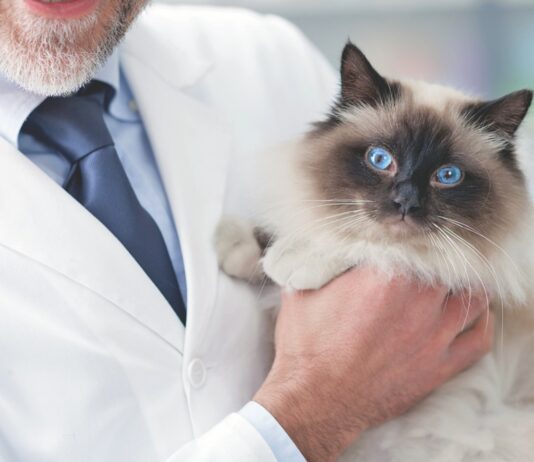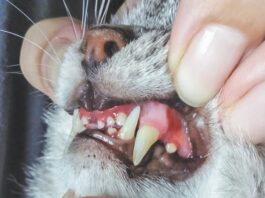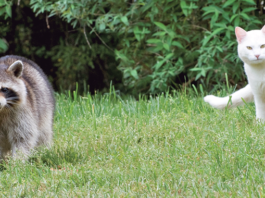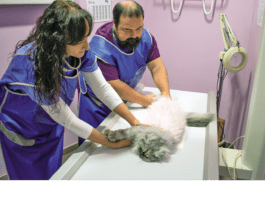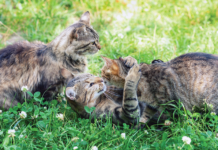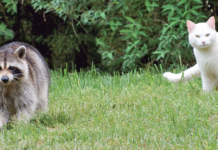At-Home Glucose Testing
Just as in humans, feline diabetes is a chronic disease in which the body cannot properly produce or respond to the hormone insulin. This...
Herbicide Kills Parasites Found in Cat Feces
Researchers recently reported in ACS Infectious Diseases that some common herbicides can kill the parasite T. gondii, which is found in cat feces and...
Do All Cats Itch and Scratch?
Q. I have a 1-year old female cat that is scratching a lot in her neck area. I give her Revolution plus flea-and-tick medicine...
Unrelenting Itchy Ears
Instead of lying quietly curled up on your lap, your cat is shaking her head and scratching and digging at her ears. You look...
Red Alert: Cat Stops Eating
When your cat starts missing meals or her free-choice bowl isn’t requiring as many refills, you need to take action. Not eating can be...
Genetic Profiling for Cats Has Benefits
Advertisements for doing genetic profiling on your dog flood the internet, claiming you can find out his breed (or breeds, if he’s a mix)...
Surgery for Megacolon
Feline megacolon and advanced constipation can be life-threatening. Caught early on, constipation and megacolon may respond favorably to medical treatment and dietary management, but,...
Genetic Clue for Variable Response to Clopidogrel
Hypertrophic cardiomyopathy (HCM) is a common disease in cats that can cause clots that may result in a potentially life-threatening blockage of blood supply...
Feline Panleukopenia
Feline panleukopenia, sometimes referred to as feline distemper or FPV, is a feline parvovirus. Like other parvoviruses, this virus attacks rapidly dividing cells, such...
FFV in Pumas Rising
A study in the January 2020 Virus Evolution showed a remarkably high number of puma infected with feline foamy virus (FFV) in California, Colorado,...
Emerging Zoonotic Disease
Feline mycobacteriosis, specifically those infections involving Mycobacterium species belonging to the Mycobacterium tuberculosis-complex group, is an emerging zoonotic disease (one that can be spread...
U.S. Rabies Cases Are On the Rise
A report from the Centers for Disease Control and Prevention showed an 11% increase in documented cases of animal rabies in the United States...

